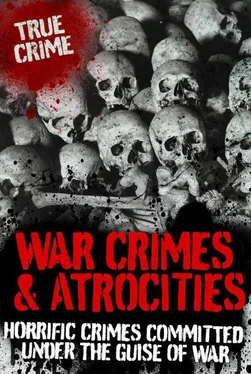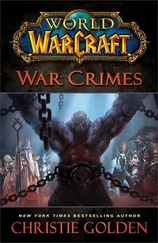The sentences pronounced by the Trial Chamber ranged from 6 to 20 years. Tadic and his defence team appealed against the sentences.
When the trial went to the Appeals Chamber in July 1999, it proved beyond reasonable doubt that Tadic was responsible for the crimes with which he had been charged, and it found him guilty on ten counts. In November, Tadic was given revised sentences ranging from 6 to 25 years for each of the additional charges.
Tadic appealed for a second time and, although the Appeals Chamber partially reversed their decision, he was finally sentenced to 20 years imprisonment and the case was closed. He was transferred to Germany to serve his term of imprisonment with a mandatory minimum sentence of ten years.
As with all crimes against humanity, it is hard to understand how a person, who probably grew up without any ethnic prejudices, could end up being accused of genocide and violations against his own neighbours. Ironically, the very groups of people who were accused of these crimes were often seen to be sitting together at The Hague either sharing meals, jokes or simply playing cards with their former rivals.
The Trial of Slobodan Milosevic
2002–2006

The trial of the former Serbian president, Slobodan Milosevic, started on 12 February, 2002, and has been called one of the most important war crimes trials since the Nazi leaders were prosecuted in Nuremburg after World War II. It was being held by the International Criminal Tribunal for the former Yugoslavia in the Hague, and it was hoped that it would force the man who had been nicknamed the ‘Butcher of the Balkans’ to face the brutality of his crimes committed under the guise of war. Many believed that they would never actually see Milosevic stand in the dock, as the trial had been delayed by his ill health, so when the trial actually commenced there were great sighs of relief among those who believed he was the architect of all the bloodshed.
THE CHARGES
Milosevic was facing three indictments – one relating to atrocities carried out in Kosovo in 1999, another for crimes in Croatia between 1991 and 1992 and the third – the most serious of the three – alleged genocide in Bosnia between 1992 and 1995.
In brief, the Bosnia indictment accused Milosevic of the following offences:
Genocide
Crimes against humanity
Grave breaches of the Geneva convention
Violations of the law or customs of war
The Tribunal gave as one example the 1995 massacre at Srebrenica, where several thousands of Muslim men and boys were captured and transported away for execution.
The Croatia indictment included:
Crimes against humanity
Grave breaches of the Geneva convention
Violations of the law or customs of war
Under this indictment, Milosevic was held responsible for the murder of hundreds of civilians and the expulsion of over 170,000 non-Serbs who were forced to leave their home towns.
For the atrocities at Kosovo, Milosevic along with four of his associates faced:
Crimes against humanity
Violations of the law or customs of war
According to this indictment, Milosevic and his colleagues were directly responsible for the deportation of 800,000 Kosovo Albanians and the murders of about 600 individuals. As commander-in-chief of the Yugoslav army, Milosevic had direct responsibility for the behaviour of of the Serbian security forces under his jurisdiction. The four other people charged alongside Milosevic were, the Serbian president, Milan Milutinovic, former Yugoslav deputy prime minister, Nikola Sainovic, the Yugoslav’s army former chief-of-staff, General Dragoljub Ojdanic and the former serbian minister of the interior, Vlajko Stojiljkovic.
Prosecutors at the trial accused Milosevic of ‘medieval savagery’, stating that it was his search for power that motivated him to commit such atrocities.
MILOSEVIC MAKES A MOCKERY
Milosevic, right from day one, made a mockery out of the court proceedings. He strongly refused to recognize the legitimacy of the UN court and showed no respect whatsoever towards the residing judge. After Milosevic refused to enter a plea or indeed appoint a lawyer on his behalf, the Trial Chamber entered a plea of ‘not guilty’ for him. They also appointed three international lawyers as ‘friends of the court’ to make sure that Milosevic’s legal rights were not violated.
Milosevic, speaking in English, told the court that he was intending to call 1,631 witnesses in his defence, including the former US president, Bill Clinton, and the British prime minister, Tony Blair. However, it was very uncertain that these influential people would actually turn up. The trial showed that Milosevic still had many loyal supporters among the Serbs and Yugoslavs. During the trial, Milosevic had a team in Belgrade that helped him, often sending information from secret police files.
The complex trial lasted for more than four years and involved scores of documents, photographs, graphic videotapes showing mangled bodies and mass graves, and intercepted audio communications. Forensic teams from around the world managed to exhume 4,000 bodies, although the estimated death toll is considered to be far higher. Milosevic was careful and did not leave any direct trails that would connect him to any of the crimes or even to the commanders and units that carried out the atrocities, so the prosecution had a difficult job ahead of them. In fact, it took the prosecution two years to presents its case in the first part of the trial, which covered the wars in Croatia, Bosnia and Kosovo.
The whole trial was a thoroughly controversial affair, and it produced many conflicting and often strange testimonies. For example, a controversial statement was made by Rade Markovic, who was the former head of the Department of State Security of the Serbian Ministry of the Interior (the Serbian Secret Service). Prior to being brought to The Hague, Markovic had been held in a Belgrade jail for 17 months. When he was asked to testify he told the court that he had been tortured in jail to force him to agree to give false testimony against Milosevic. He told them that he was offered a change of identify and a comfortable new life if he was prepared to lie.
A BREAKTHROUGH
In October 2001, the investigators involved in the Milosevic case had a major breakthrough. They released the names of several Serbian officials, who had been under close scrutinization, as members of Milosevic’s ‘joint criminal enterprise’. Rather than face criminal indictments, it was believed that these men would rather cooperate with the investigators. By the end of the year, literally dozens of former Serbian officials, some of whom had been close associates of Milosevic, had agreed to testify against him. Many of these men were considered to be the former backbone of Milosevic’s ‘secret’ state and could therefore be influential in the outcome of the tribunal. It was felt that if these men would name and shame the people who actually ordered the killings, it would help the prosecution convict Milosevic. However, Milosevic proved to be quite a formidable force when it came to attacking the prosecution. He skilfully manipulated the witnesses and he seemed to have a natural ability to throw his opponents off the scent.
Towards the end of his trial Milosevic started to complain of health problems and demanded that he be given a provisional release to Russia for treatment. His request was denied and the tribunal’s own doctor was ordered to examine him. His ill health caused many intermissions and prolonged the trial by at least six months. The trial wasn’t resumed until October 2004 and the former Soviet premier, Nikolai Ryzhkov, became the first high-profile witness to testify for the defence. Had Milosevic been able to complete his defence, it was believed that he would have gone down the route that NATO’s attack on Yugoslavia was aggressive, thus making it a war crime under international law. For example, the bombing of a Serbian state television building in April 1999, in which 16 people died, was a deliberate attack on a civilian target.
Читать дальше













